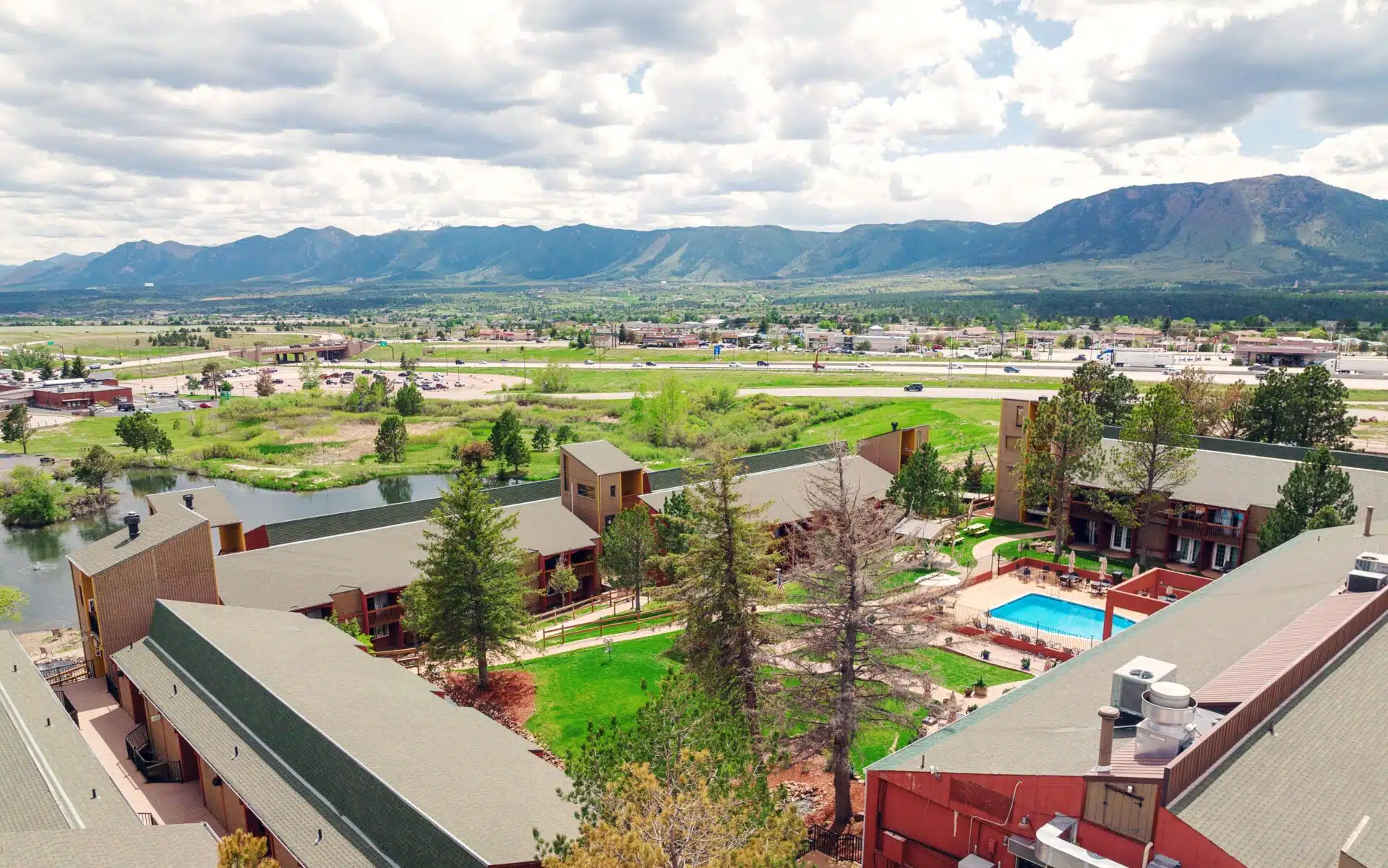One of the common questions that people ask when it comes to starting their recovery is if they should go to private rehab centers or ones affiliated with the government. Although both types of facilities have the common goal of supporting people in addiction recovery, there are many differences between the two.
What Are Private Rehabilitation Programs?
In essence, private rehabilitation programs are companies owned by groups or individuals that are for-profit or nonprofit purposes. The facilities are not affiliated with the government, although many of them can accept Medicare or Medicaid health insurance.
Private rehabilitation programs and centers also offer the same types of programs as any standard addiction treatment facility would. Many have the following types of care:
- Medical Detox
- Treatment Services (12-Step, Non-12-Step, Dual Diagnosis, Holistic Treatments, Group Therapies, Intensive Outpatient Programs)
- Relapse Prevention Guides
- Support Groups
- Demographic-based Treatment (Veterans, LGBTQ, College students, etc.)
Since private rehabilitation programs are operated independently, they may have premium facilities, shorter waitlists, and also a different price range for the services. To further understand the difference, take a look at the comparison below between public and private rehab.
Public vs. Private Rehab
The main difference between private drug rehab and a facility operated by the government is how they are funded. Private rehab centers are operated as companies, which means that private insurance companies pay for services or people pay for them out of their own pockets. Government rehab centers, by contrast, are partially covered by taxpayers’ money.
Given the lower costs of government rehab centers, it is common for many government rehab centers to have long waiting lists. Since so many people seek help from government-funded facilities, some people may not receive the help they need right away. Therefore, for someone who urgently wants to start on the path to recovery, a private drug rehab facility may be a better choice.
You may have many questions about the centers and what they do. If it is your first time looking into addiction treatment services, there may be many things you are unsure about or just don’t know. Below are some common questions about private drug rehab centers and how they may assist in recovery. We have taken the necessary precautions to minimize the risk of exposure and transmission of the Coronavirus to those in our treatment programs, allowing them to focus on their recovery.
Get Help During COVID-19
Privacy In Private Treatment
Another differentiating factor between public and private treatment centers is the nature of care. Some individuals would want a secure and comfortable place where the patient-to-worker ratio is less, which means more privacy.
Others would not want to reveal their rehabilitation experience to the public, such as high-profile individuals or people who are going through their addiction in private. In such situations, a private rehab center may be the best option. Public centers may require individuals to log into government databases, have more patients in treatment, and may have lesser facilities for solitude.
A private center can offer premium facilities for those who desire confidentiality and solitude in addiction rehabilitation.
Protecting Confidentiality
Why is confidentiality important to addiction treatment? Like any other healthcare condition, the detail of your substance use disorder problem and treatment is a personal type of information. By signing up for high-quality addiction treatment centers, your information will not be shared with other individuals who are not involved in your treatment process.
Confidentiality is important to:
- Protect your image
- Avoid potential discrimination or prejudices regarding your condition
- Prevent others from taking advantage of your personal information for malicious motives
- Give you peace of mind regarding the professionals involved in your care
With this in mind, it is also important to assess if private treatment is the best choice for your needs.
Is Private Treatment Right for You?
As you understand the differences between private and public rehab centers, you may also want to consider the benefits and disadvantages of going into one. Knowing the pros and cons of private treatment programs can help you decide if you can feasibly and successfully start your addiction rehab in such facilities.
Benefits of Private Rehab
- Premium care: Since private rehab is mostly paid through private insurance companies, there is a premium level of care in terms of services, facilities, and programs offered.
- Less waiting time: There are more private rehab centers than government-funded ones, so there’s less waiting time to receive care and more flexible options regarding when you would want to get treatment.
- Top-notch facilities: Along with a premium level of care, you will also find high-quality lodging, resting areas, resources, and other amenities available in the center.
- Privacy guaranteed: Since there are fewer patients, you will also be guaranteed a higher level of privacy and the confidentiality promise from the rehab professionals.
- Selection of treatment: You will also find rehab centers that have more selections for treatment aside from the typical 12-Step. You may also find psychotherapies as well as alternative lines of care such as holistic methods.
Disadvantages of a Private Rehab Center
- Higher costs: Due to the premium nature of private rehab, you will end up paying higher costs if you don’t have insurance. Alternatively, there is also a chance of paying higher out-of-pocket costs if the treatment cost is above your insurance coverage.
- Out-of-state selections: Public rehab centers are often plugged in to serve the needs of the community. Thus, you may find your private rehab choice to be out-of-state, which will be a bigger commitment in terms of traveling and other life responsibilities.
- Insurance policies: Some insurance companies may not be affiliated with a particular center, which means that you need to fund the treatment on your own.
Learn More About Your Insurance Coverage
Don't see your Insurance Provider?
Factors Contributing to Private Treatment Costs
Private rehab facilities may vary widely in cost. Costs may depend on various factors.
Quality of private rehab facilities
Quality care in private rehab often means higher costs. This is because their funds pay for state-of-the-art equipment, trained experts, and luxurious amenities. While some rehab centers feature higher price points, the cost may be worth it. Quality care in rehabilitation is essential for recovery success.
Type of clients
There are also differences in costs between inpatient and outpatient care in private rehab centers. Inpatient treatment requires clients to stay at the facilities where they are receiving treatment. It may be more expensive since the private rehab centers feature lodging, 24/7 health care, and different amenities. You can choose to be an inpatient to receive more focused care, or medical and mental health professionals may recommend inpatient treatment as a part of your management plan.
On the other hand, outpatient treatment requires following management plans that clients may complete at home. Outpatient care may include support groups, off-site counseling sessions, reporting for regular drug or alcohol testing, and other medical and mental health screenings.
Type of program
Aside from inpatient or outpatient care, specific treatment programs also help determine costs. Private alcohol rehab centers offer programs to help their clients. Various life enrichment classes, psychotherapies, or other options may determine the total cost of rehab programs.
Length of stay – 30, 60, or 90-day treatment centers
Typically, private rehab centers offer 30-day, 60-day, and 90-day inpatient programs. The length of stay also influences the cost of private drug rehab programs. People who want to increase their chances of success in recovery tend to stay longer in inpatient rehab programs.
It is disheartening that 56% of Americans with addictions and mental health disorders do not receive the help they need because they think that they cannot afford the costs. Although it is realistic to think of finances when considering private rehab, there are many ways to cover the costs of private drug and alcohol rehab.
Who Should Consider Using a Private Rehab Center?
After understanding the costs as well as the pros and cons of private addiction treatment, who are the people who should consider getting this type of care? Although most people can benefit from private rehab, here are some questions you can ask to know if have premium addiction care is the right fit:
If you answered “yes” to any or all of these questions, you will likely benefit from private addiction treatment.
How to Pay for Private Rehab
There are several options to pay for exclusive drug rehab. You may be surprised to know that rehab may be more affordable than you think. If you have access to the following resources, you can pick one or combine them to cover the cost of your private drug rehabilitation
Insurance
You may have health insurance from your employer, health care coverage through the military, or independent coverage you secured as a self-employed individual. Insurance is one of the most common ways to pay for drug rehab. According to the Mental Health Parity and Addiction Equity Act of 2008, most health insurance companies are required to cover the costs of rehabilitation because addiction treatment is considered a treatment for a medical condition.
This means that addiction is no less of a disease than other conditions such as cancer, diabetes, or heart disease. If you are unsure about your insurance and treatment options, call us to verify your coverage.
Savings
When private insurance is not an option, you may want to use your savings to cover the cost of rehab. While you may worry that this will damage your finances, think of rehabilitation as a long-term investment in your life. If you’re continuing to spend money on drugs and alcohol, it could be much more costly and damaging to your health.
If your insurance will only partially cover the cost of the private rehab facility of your choice, you can cover additional costs with your savings. By using savings, you can pay for addiction treatment with cash or debit payments or make other types of financing arrangements.
Family and friends
You can also find sponsors such as friends and family members to help cover the cost of rehab. Being honest with your journey to recovery may open doors to kind hearts who want to help. Loved ones who care for you may be willing to lend or give you money to cover the cost of your treatment.
Crowdfunding
If you visit websites such as GoFundMe’s fundraising for medical or Fundable, you can find people who are seeking help to cover the cost of their medical treatments. You can also employ the same strategy to raise money for rehab, or you can use social media outlets such as Facebook, which has a fundraiser set.
Other crowdfunding options to find help include creating fundraising opportunities. You can host events such as a fun run or movie night or sell goods to help raise money for addiction treatment costs.
These are just some examples of how to find private money for rehab. Using creativity and perseverance, you can find ways to cover the cost of your treatment, whether you have insurance or not.
Financing
Individuals can apply for a personal loan or a medical loan that may have better terms. As a last resort, there are credit cards. Personal credit cards with 0% interest for a year or longer are often available to people with good credit. There are also medical credit cards, again maybe with better terms.
Scholarships
Although an individual with SUD may not have health insurance that covers all the expenses associated with rehab, there are other ways to pay for treatment. Some individual rehab centers provide scholarships—contact facilities near you to see if they have an application process—as do their corporate parents and some nonprofits.
One of the latter is 10,000 Beds, a charity that partners with treatment centers that donate at least one full scholarship per year. 10,000 Beds vets the applicants to see if they qualify have exhausted all other sources, will commit to the 30-day treatment program and want to change. The charity tries to distribute 100 to 200 fully-funded scholarships per year.
Something similar to a scholarship is a grant. The Substance Use Disorder and Mental Health Services Administration (SAMHSA) funds addiction treatment through individual grants and block grants to the states. You can apply for a treatment grant here.
What to Look for In Private Rehab
When you are looking for a private inpatient facility, it may be easy to think only of convenience. Many people may say, “I want a private drug rehab near me,” but other factors are also important when you are searching for the right private rehab. Other qualities to consider include:
Licensed facilities
One important aspect to consider when researching a private rehab center is its licensure. Some sober facilities or halfway houses freely bill people’s insurance providers without providing quality care. Many high-quality centers have met state and national standards by providing quality facilities, equipment, and staff members.
Around-the-clock care
Monitoring is crucial for those who are planning to undergo recovery. Reputable drug and alcohol rehab facilities employ health care workers and other staff members to help clients who are suffering from the negative effects of drug and alcohol withdrawal. Around-the-clock care also helps individuals stay accountable during the recovery process. Additionally, by being in this setting, you are removed from any potential negative environments that would predispose you to continued substance use.
Family participation
Individuals who are successful in recovery typically receive family support during their rehab programs and recoveries. Many centers encourage family participation in therapies or allow their clients to see visitors. Experienced specialists are trained to communicate with family members on how to help clients avoid relapse after they leave rehab centers.
Confidentiality
Choose a center that values its clients’ privacy. Your journey towards recovery is personal. This means that you want staff members and medical specialists to secure your information and disclose it only when it is necessary.
Wide variety of programs
Rehab centers that offer a wide variety of programs provide many resources to cater to their clients’ individual needs. Clients have a greater chance of recovery if they follow specialized programs. To provide such specialized benefits, some centers offer 12-step and non-12-step programs, different therapeutic techniques, holistic approaches, and other treatments to meet every client’s individual needs.
Counting the Cost of Private Rehab
Selecting the best addiction treatment for you or a loved one is a matter of setting your priorities. If you desire quality care even with a premium cost, a private rehab may be the best fit. Truly, what matters is deciding to commit to addiction recovery, and private treatment is one of the many paths towards sobriety.
Sources
Medical disclaimer:
Sunshine Behavioral Health strives to help people who are facing substance abuse, addiction, mental health disorders, or a combination of these conditions. It does this by providing compassionate care and evidence-based content that addresses health, treatment, and recovery.
Licensed medical professionals review material we publish on our site. The material is not a substitute for qualified medical diagnoses, treatment, or advice. It should not be used to replace the suggestions of your personal physician or other health care professionals.








